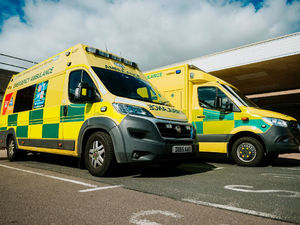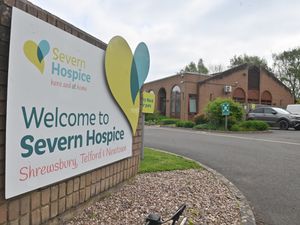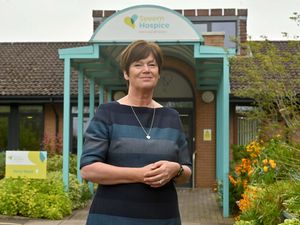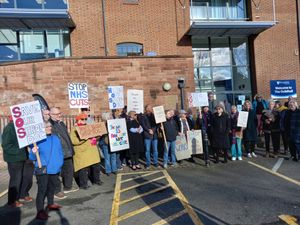Number of ambulance delay deaths rises from one in 2020 to 37 in 2022
Deaths of patients who have faced harrowing waits for ambulances that have been stuck in queues outside hospitals have increased markedly in the last three years, shock new figures show.

The ambulance service covering Shropshire says its crews had to wait a total of nearly 40,000 hours waiting to discharge patients into hospitals in October alone, which keeps them off the road.
In 2020 the death of one person after an ambulance delay was recorded and a serious incident was declared, in 2021 the number of deaths rose to 22 and in the first nine months of October, 2022 the figure had leapt to 37, according to a Freedom of Information request to the BBC.
But the ambulance service is unable to advise of the number of deaths before an ambulance has arrived, as this is not available in a reportable format.
The figures relate to the number of deaths where the case has been declared a potential serious incident.
The Shropshire Star has been telling the harrowing stories for months of people who have suffered the anguish of having to wait for an ambulance. The NHS and its social care partners say they are working to reduce the delays.
A spokesman for West Midlands Ambulance Service said: “We have seen a significant increase in the number of cases which have been called as Serious Incidents.
"The vast majority of these are where patients have come to harm as a result of ambulance crews being unable to respond to patients in a timely manner, due to the level of hospital handover delays.
“The ambulance service relies on each part of the health and social care system working together so that our ambulances can get to patients in the community quickly. Sadly, the pressures we are seeing in health and social care lead to long hospital handover delays with our crews left caring for patients that need admitting to hospital rather than responding to the next call.
"The result is that our crews are delayed reaching patients.
“We are working incredibly hard with all of our NHS and social care partners to prevent these delays, looking at new ways to safely hand over patients quickly so that our crews can respond more rapidly and save more lives.”
Ludlow Needs Ambulances campaigner Darren Childs said: "Unfortunately 37 deaths are not that surprising - if people are having to wait hours for an ambulance and hours to get into the hospital then the number of deaths is going to go up.
"There are only one lot of people who are responsible and that is the Government, which needs to invest in the NHS."
Ludlow town councillor Childs said an investment in paying more to doctors and nurses could stop them leaving the NHS, which he said is at risk of collapsing under mounting pressures this winter.
WMAS says its Clinical Validation Team of advanced paramedics and nurses are helping them direct ambulances to those who need them most by assisting more patients over the phone or seamlessly transferring patients to other parts of the NHS such as occupational therapy, advanced nurse practitioners in the community, district nurses or referring patients to SDEC services.
New ambulance decision areas at University Hospitals of Birmingham (UHB), Shrewsbury and soon Worcester are already making a difference, with delays at UHB half what they used to be.
Advanced paramedics are working with Ambulance Healthcare Assistants to look after patients within dedicated areas of the hospital to free up crews – they have additional skills which allow them to start tests that the patient needs ahead of them entering emergency departments. Fewer than 50 per cent of ambulance patients now go to A&E, they say.




